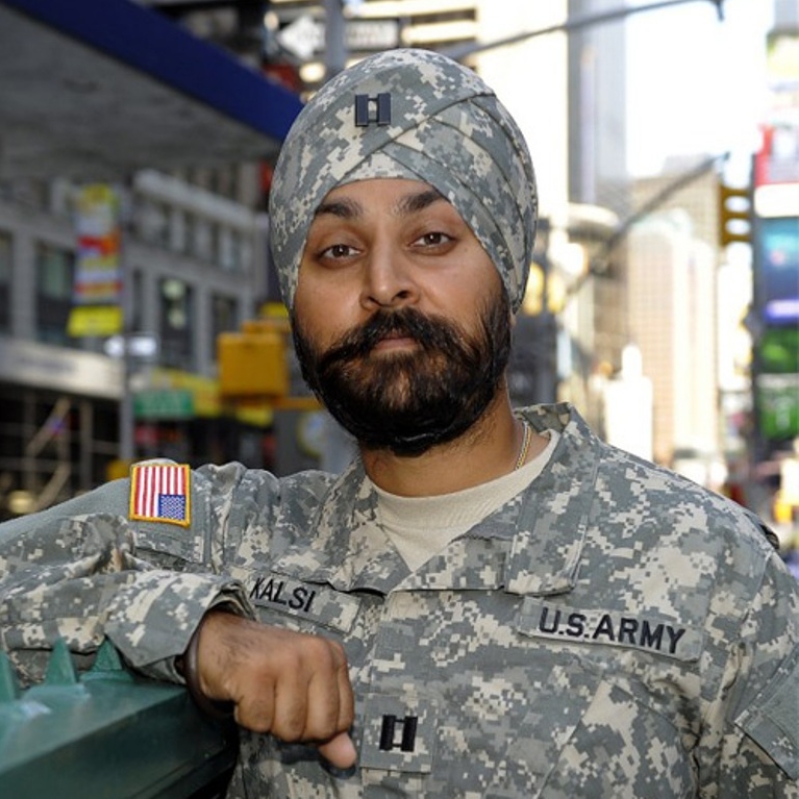
New U.S Army regulations released on Tuesday state service members at the brigade level now will be granted religious accommodations to wear turbans, skullcaps, beards and hijabs, in accordance with their faith, effective immediately. The new policies also permit religious bracelets, as well as dreadlocks for female soldiers. Permissions of this type previously were made on a case-by-case basis.
The new guidelines allow for body art and other expressions of religious belief, reports The Guardian.
The Army rule update comes during the same week that New York Police Commissioner James O'Neill announced the New York Police Department decision to allow officers to wear turbans and grow beards for religious reasons. Read related article in The Gospel Herald - Religious Police Attire: New York Officers Now Can Wear Turbans, Grow Beards
"Based on the successful examples of soldiers currently serving with these accommodations, I have determined that brigade-level commanders may approve requests for these accommodations," wrote Secretary of the Army Eric Fanning in a letter announcing the decision.
Several lawsuits in recent years pressured the Army to change its policies on grooming and dress. In April 2016, Bronze Star recipient Capt. Simratpal Singh was granted a permanent accommodation to wear his turban and beard after he sued the military for discrimination, reports The Huffington Post. But that ruling applied only to Singh.
Tuesday's decision ensures that brigade-level commanders will approve all requests for religious accommodations as long as the soldier demonstrates sincere faith observance and doing so would not present a "specific, concrete hazard."
Army officials will continue testing for safety hazards posed by accommodating articles of faith, Fanning said. Soldiers with religious accommodations to grow beards will be restricted from military schools and positions with proximity to toxic chemical agents.
"My turban and beard represent my commitment to pluralism and equality," said Major Kamaljeet Singh Kalsi, who was granted an accommodation in 2009. "This new policy change underscores the military's commitment to these values and is a sign of meaningful progress that will ensure the strength of our democracy."
"Our goal is to balance soldier readiness and safety with the accommodation of our soldiers' faith practices, and this latest directive allows us to do that," Lieutenant Colonel Randy Taylor said in a statement.
Before the rule change, service members who wanted to wear articles of faith had to be granted a limited accommodation or permission to serve in the Army, reports International Business Times. Such accommodations weren't always guaranteed, and if they were, they often reportedly were short-lived. Many said the permissions had to be renewed after nearly every assignment.
Thousands of Muslims, Sikhs, Buddhists, Wiccans and members of other religious groups serve in the Army. Many groups have protested against the exclusion of religious apparel, saying it forces them to choose between their religious beliefs and a desire to serve the nation.
To be approved within the new policies, changes in apparel or presentation must not impair the operation of weapons, pose a health or safety hazard or interfere with other military equipment, such as helmets, flak jackets or wetsuits, according to the guidelines.







